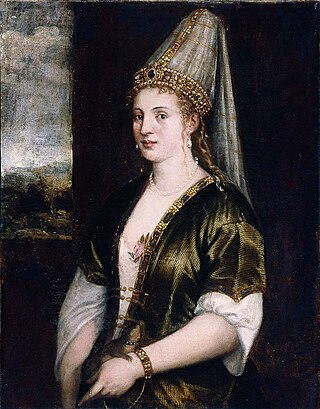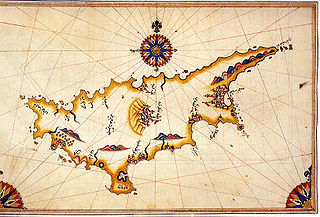This article has multiple issues. Please help improve it or discuss these issues on the talk page . (Learn how and when to remove these template messages)
|
DEBU | |
|---|---|
 | |
| Background information | |
| Origin | |
| Genres | Spiritual, world fusion, Nasyid, world |
| Years active | 2001 - present |
| Labels | Forte, Dust Productions, Fame Mobs |
| Website | www.musikdebu.com |
Debu: A Musical Journey of Harmony and Spirituality
Contents
Debu, a group of Muslim musicians, embarked on their musical journey in 2001, originating from South Jakarta, Indonesia. The band, founded by Shaykh Fattaah, began as an informal extracurricular activity among teachers at an Indonesian university in Makassar.
Founder:
Shaykh Fattaah: The visionary founder of Debu, Shaykh Fattaah played a crucial role in shaping the band's spiritual direction and was the primary lyricist. His influence lingered even after his passing on May 26, 2018. The band's name, "Debu," translates to "dust" in Indonesian, symbolizing humility and encouraging listeners to focus on the music and its message rather than the individuals.
Current Members:
Shaykh Fatih (formerly known as Mustafa Debu): Serving as the singer and musical director, Shaykh Fatih/Mustafa Debu brings a unique artistic vision to Debu. In addition to his vocal talents, he is a multi-instrumentalist, playing the oud, baglama, ney, and violin. His multifaceted role contributes to the band's distinct sound and musical direction.
Daood Debu: Renowned as the master darbuka player and a seasoned teacher, Daood Debu adds a rhythmic brilliance to Debu's music, enriching their performances. His presence is likened to the heartbeat of Debu, pulsating through both live performances and recordings, providing a foundational and essential element to the band's sonic identity.
Toto Gitano: A skilled flamenco guitarist and music teacher for Shaykh Fatih/Mustafa Debu and Daood Debu, Toto Gitano's mastery of the flamenco guitar adds a rich and dynamic layer to Debu's musical tapestry.
Luthfi Rahimi (Ghostfingers): Another master darbuka player, percussionist, and ethno-musicologist, Luthfi Rahimi, also known as Ghostfingers, brings a wealth of knowledge and skill to Debu, enhancing their exploration of diverse musical traditions.
Franky Sadikin: A master jazz bassist with followers and students all over Indonesia, Franky Sadikin's profound contributions on the bass guitar add a sophisticated and melodic dimension to Debu's music.
Maryam Debu: With her amazingly mesmerizing voice, Maryam Debu transports listeners to the realm of the divine from the moment she starts to sing. Her vocals add a celestial quality to Debu's performances, making her an integral part of the band's captivating musical journey.
Layla Eriksen (Mother of Dust/Debu): The mother of dust, Layla Eriksen, has been the source of all of Debu's inspiration. Her sincerity in the upbringing of many Debu members, particularly Shaykh Fatih/Mustafa, Maryam, Daood, Abdullah, and Burhan, has played a pivotal role in shaping the band's ethos. Layla Eriksen's nurturing influence extends beyond her own children, contributing significantly to the upbringing of the band members in the past.
Abdullah Debu: The son of Shaykh Fatih/Mustafa and Shakurah Yaseerah, Debu's original violinist, Abdullah Debu started playing the violin at the age of 4 and became fully active in Debu by the time he was 8. Besides being a violinist, he plays a crucial role in the IT and management aspects of Debu. Abdullah, now 23, has been working as a network engineer for the past 5 years, contributing both musically and professionally to the band's continued success.
Burhan Aal Daood: The newest addition to Debu, Burhan Aal Daood, at 16 years old, is the son of Shaykh Fatih/Mustafa and former member Husnia Larussa. His voice and musical tendencies are a perfect mixture of Shaykh Fatih/Mustafa and Husnia, presenting a unique upgrade to the band's sonic palette. Burhan contributes his vocal talents, adding a fresh and vibrant element to Debu's evolving sound.
Debu's music is a captivating blend of Middle Eastern strings, thumping drums, flutes, violins, santur, flamenco guitar, baglama, tambura, oud, dumbek, electric bass, and traditional Indonesian instruments like the Suling Sunda (Sundanese flute). Their lyrics, delivered in Indonesian, Arabic, English, Persian, Turkish, Spanish, and Chinese, center around themes of peace, love, and longing for the Creator. According to the band, "Their long-awaited message of love and peace is not new; to them, it's the essence of Islam, the Sufi way, and the way of humanity."
Debu has released albums in Indonesian, Turkish, and Persian, gaining recognition not only for their musical prowess but also for the universal message of harmony they promote. The band's basecamp is currently located in Limo, Depok, where they continue their musical journey, inspired by the legacy of Shaykh Fattaah and guided by the collective spirit of its diverse and talented members.










